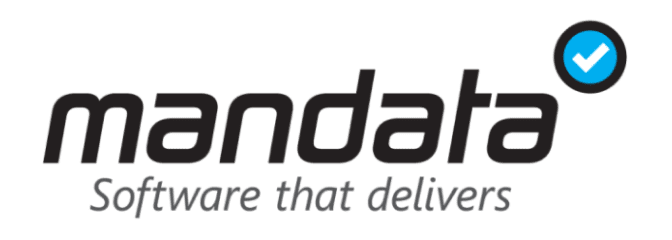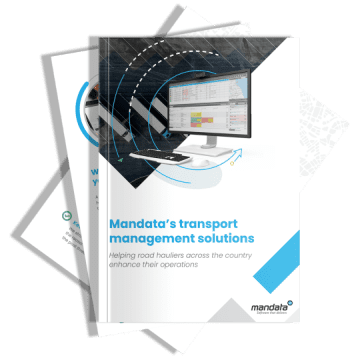What is Fleet Management Software?
No matter the size of a business’s fleet, or sector they operate in, organisations with a fleet of vehicles are increasingly turning to technology to simplify the management their operations. Fleet management has become a critical aspect of modern haulage businesses, offering a comprehensive system to improve and monitor various aspects of a company’s fleet.
This article explores the concept of fleet management, delves into fleet management software, highlights the distinctions between fleet and transport management software, and outlines the key benefits and features of these systems.
What is fleet management?
Fleet management refers to the supervision and coordination of a company’s vehicle fleet. This includes a range of elements like adding more vehicles to a fleet, maintenance, telematics, driver management, fuel management, and compliance. The primary goal of fleet management is to boost process efficiency, reduce costs, and ensure the overall safety and compliance of the fleet. Fuel equates to around a third of a haulier’s outgoings, therefore saving costs here where possible is vital.
What is fleet management software?
Fleet management software centralises multiple processes into one system, providing a unified approach to managing a fleet of vehicles. From real-time tracking to maintenance scheduling, fleet management software enables organisations with the tools they need to make data-driven decisions and improve productivity through simplified compliance, vehicle and driver management, and easily managing costs.
The difference between fleet and transport management software
While the terms “fleet management” and “transport management” are sometimes used interchangeably, there are subtle differences between the two. Fleet management primarily focuses on the vehicles themselves, addressing specific aspects like maintenance, fuel efficiency, and driver behaviour. On the other hand, transport management encompasses a broader scope, including route planning, order management, consignment tracking, and functionality that covers the entire logistics and supply chain.
Learn more: 9 Benefits of a Transport Management System for Haulage Businesses
Key benefits of fleet management software
- Cost reduction: Fleet management software helps businesses identify areas where cost savings can be achieved. This includes helping to maximise miles per gallon, reduce maintenance expenses through regular maintenance scheduling, and improving driver behaviour.
- Enhanced safety and compliance: By monitoring driver behaviour and vehicle conditions, fleet management software contributes to a safer working environment and aids in compliance with driver’s hours regulations.
- Improved efficiency: Improvements to various processes like route planning, maintenance scheduling, and inventory management, results in saved time and therefore increased operational efficiency.
Key features of fleet management software
- Real-time GPS tracking: Enables hauliers to track the location of each vehicle in real time and provides better visibility into progress of jobs.
- Maintenance management: Helps schedule and track vehicle maintenance, reducing the likelihood of unexpected breakdowns and extending the lifespan of the fleet.
- Telematics: Monitors driver behaviour, including speed, braking, and acceleration, contributing to safer driving habits and improved fuel efficiency.
- Fuel management: Tracks fuel consumption and identifies areas for improvement, helping hauliers reduce fuel costs and minimise their environmental impact.
- Compliance and reporting: Assists in adhering to regulatory requirements by providing tools for documentation and reporting.
How does it work?
Fleet management software operates by collecting and analysing data from various sources, including GPS devices, sensors, and vehicle diagnostics. This data is then processed and presented in a user-friendly interface, allowing fleet managers and office staff to monitor and manage their fleet efficiently.
This data is then used to help improve key areas of the business, including compliance, health and safety, reducing costs, and the maintenance of the fleet. Ensuring all these aspects are met, operators are more likely to provide the appropriate levels of customer service, and with growing customer demands, fleet management software is becoming more vital for success.
Frequently asked questions
Is Fleet Management Software suitable for small businesses?
Fleet management software can be used by hauliers of all sizes looking to make improvements to their current ways of working and looking to future-proof and digitise their processes.
What types of vehicles can be managed with Fleet Management Software?
You can use fleet management systems to manage a range of vehicle types including cars, vans, lorries and other commercial vehicles.
How does the software help with vehicle maintenance?
Fleet management software has functionality available in the product that allows companies to digitise and securely store documents that help hauliers remain compliant. The software would create a digital audit trail so if inspections occurred, document retrieval would be simpler and smoother than ever.
What technologies are commonly integrated with Fleet Management Software?
Fleet Management Software typical integrated with Transport Management Software, finance, HR, payroll, the DVLA, fuel and maintenance card providers, telematics and HMRC.
Fleet management systems have become indispensable for businesses looking to fine-tune the process of organising their fleet of vehicles. By adopting Fleet Management Software, businesses can review current processes to identify areas of improvement, reduce costs, and simplify safety and compliance obligations. As technology continues to advance, the role of fleet management software is likely to evolve, offering even more sophisticated tools to meet the ever-changing demands of the modern business landscape.

